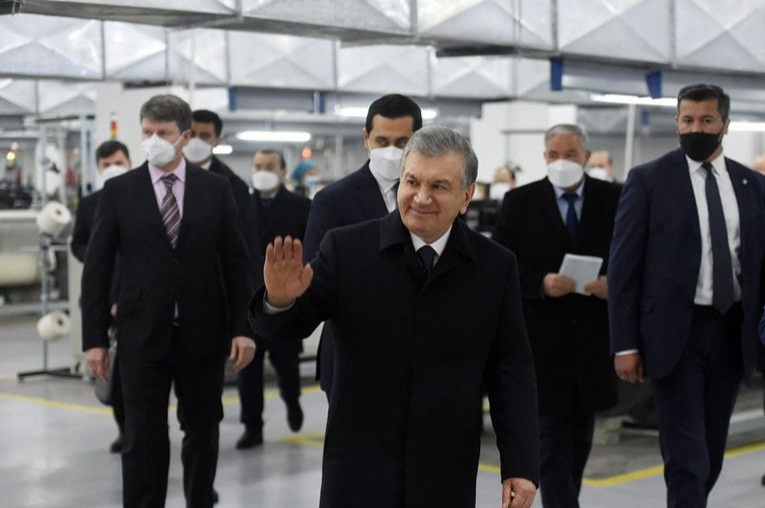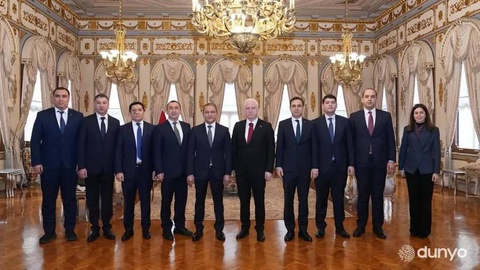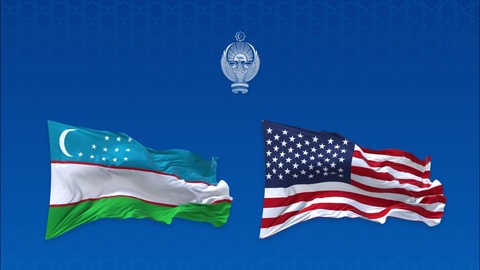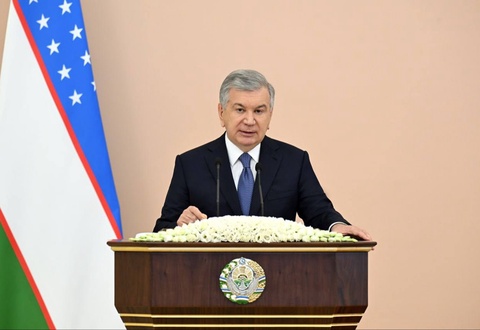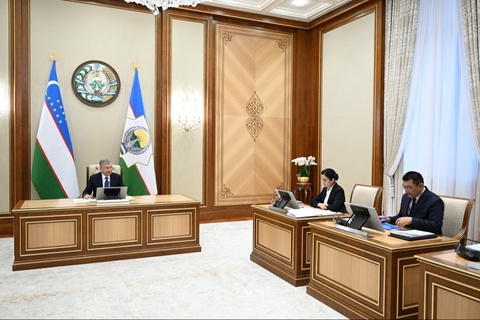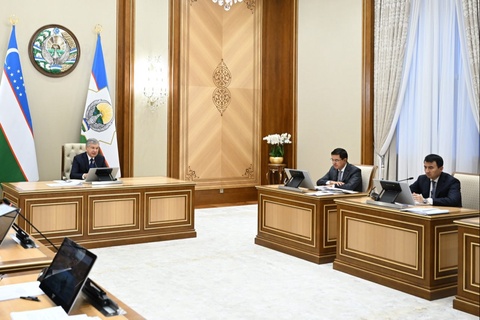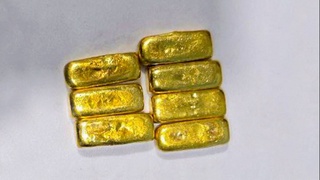The enterprise is a clear example of an economic policy aimed at efficient use of empty buildings, their privatization and development of entrepreneurship. This structure has been in disrepair for many years. The building has been renovated by Asaka Bank’s investment for more than $16 million and installed equipment from China, South Korea and Italy.
Currently, it produces fabrics and bedding. More than 200 people are employed.
The company manufactures 12 million linear meters of fabric and 600 thousand sets of bed linen per year, as well as exports its products worth $6 million.
President became familiar with the technological process at the new enterprise.

Now work is underway to increase production and open a factory for dyeing fabrics in Urgench. Thus, painting, packaging and export of fabric to Russia and other countries will be established at the second stage.
Issues of creating a new system of work in the context of mahallas were also discussed here. It provides for assigning employees of economic complex of the district level to mahallas and resolving issues in the relevant part.

“We elect the mahalla chairmen and demand a lot from them”, Shavkat Mirziyoyev said. – But there is no clear answer to the question of what the heads of state agencies are doing at places. Now we will create a system in which the financial security of government employees will be determined by the satisfaction of people. Managers, responsible for taxes, finance, employment, investment, entrepreneurship and other issues, will work in mahallas. The chairmen of mahallas will make demands on problems on their territory. This is the basis for holding reforms in the grassroots system. People need to feel it”.

Responsible officials were instructed to implement this system and train mahalla chairmen at the Academy of Public Administration.


















